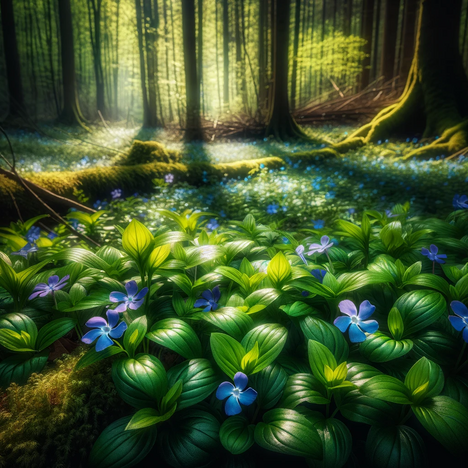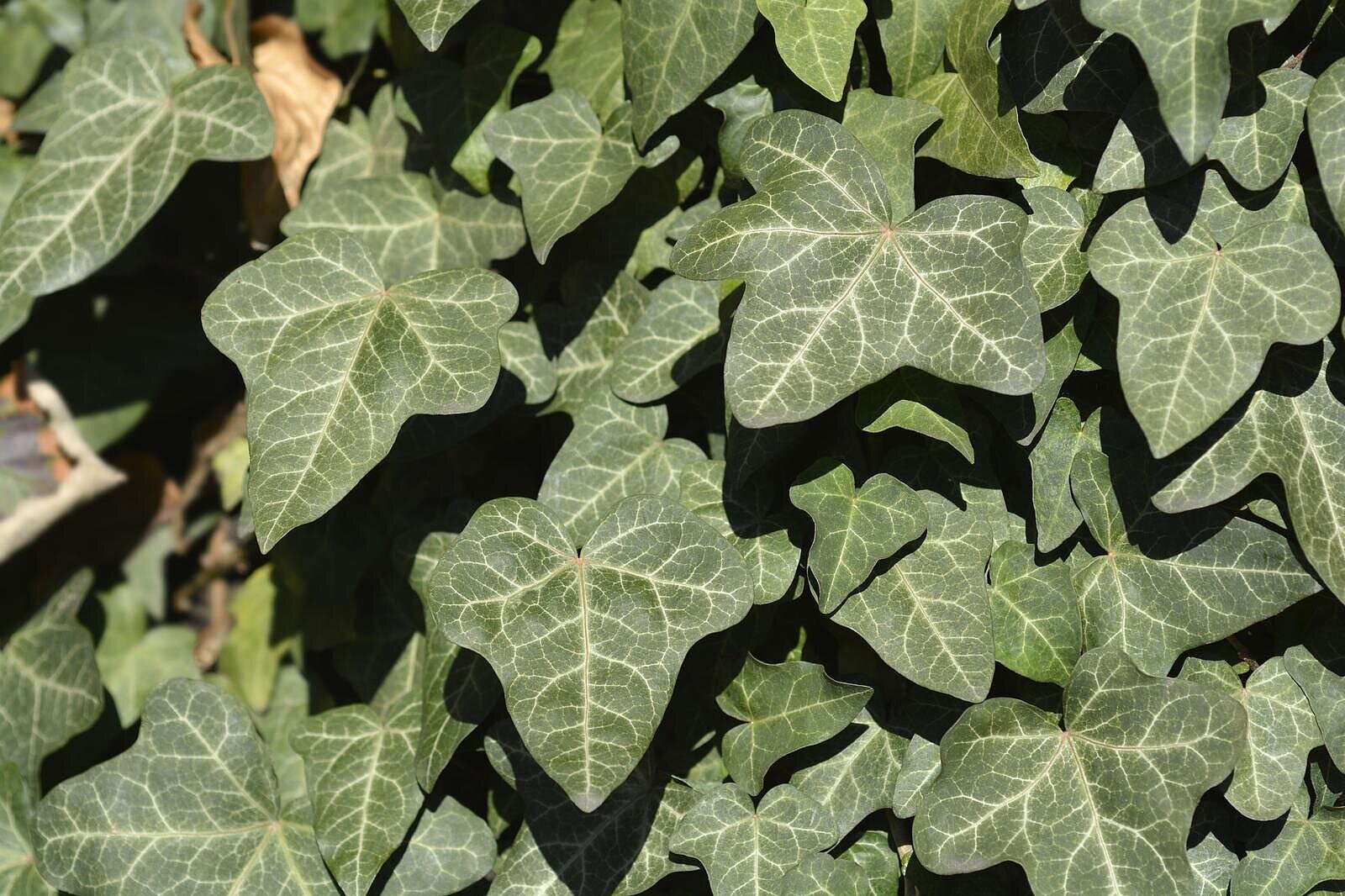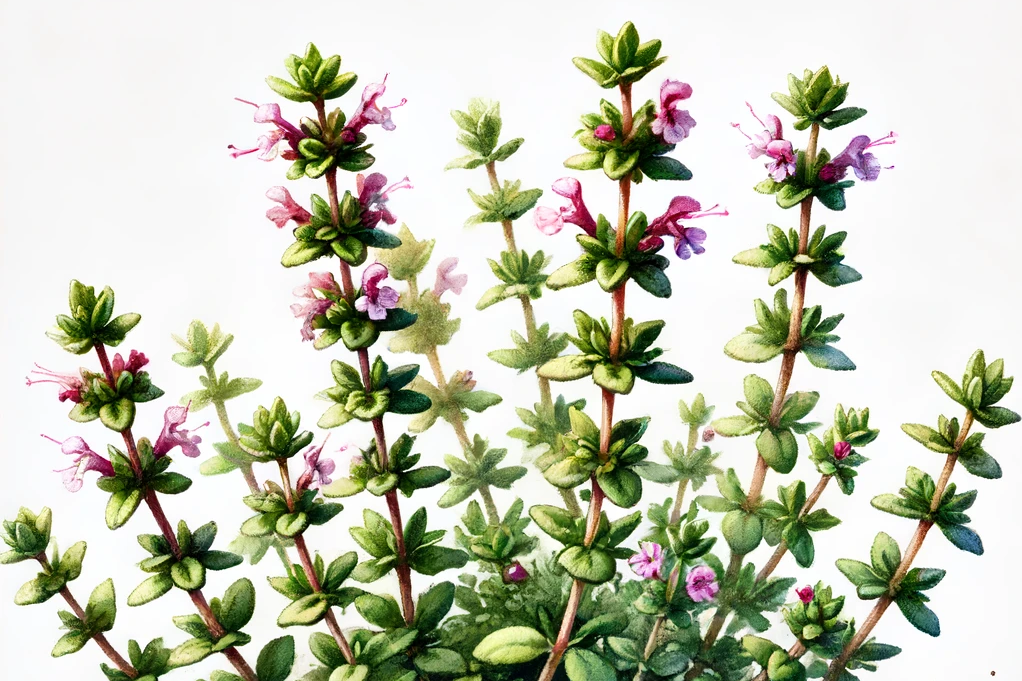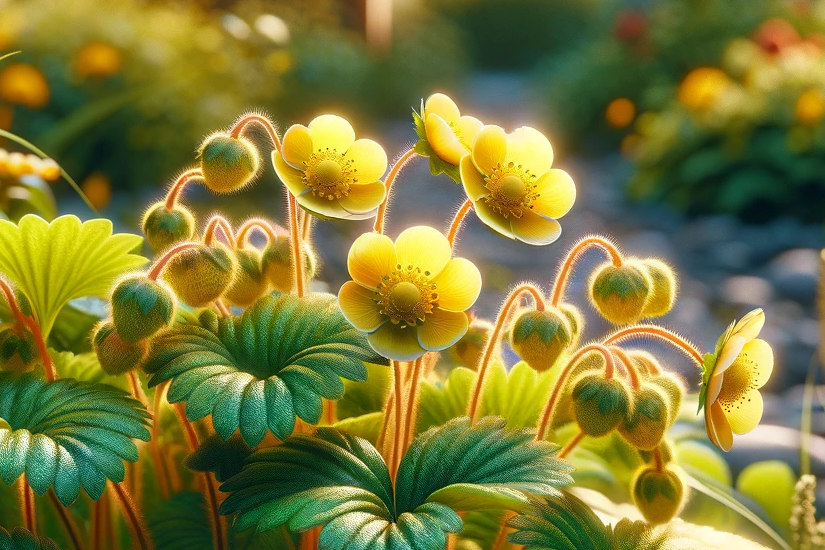Evergreen

What is periwinkle?
Periwinkle, also known as Vinca, belongs to the dogbane family(Apocynaceae). It is a genus of evergreen, ground-covering plants that are known for their ability to grow quickly and form dense carpets. In spring and summer, they adorn themselves with small, star-shaped flowers that can range in color from white to pink to intense purple. Originally native to Europe, northwest Africa and southwest Asia, periwinkle is now widespread in temperate climates around the world.
Advantages of periwinkle in the dog garden
Aesthetic value
With its lush greenery and colorful flowers, periwinkle can be a visual enhancement to any garden. It provides a dense ground cover that minimizes weed growth and makes the garden easier to maintain.
Prevent soil erosion
Due to its dense growth habit, periwinkle helps to prevent soil erosion. This can be particularly beneficial in gardens on slopes to keep the soil stable and ensure that dogs don't slip or damage the ground when playing.
Disadvantages and potential dangers for dogs
Toxicity
A major disadvantage of periwinkle is its toxicity. All parts of the plant contain alkaloids, which can lead to symptoms of poisoning in dogs. Symptoms of poisoning include vomiting, diarrhea, lethargy and, in severe cases, convulsions and heart problems.
Temptation and curiosity
Dogs, especially young or particularly curious specimens, tend to explore their environment by sniffing it or even eating parts of plants. The availability and accessibility of periwinkle can encourage this tendency and increase the risk of accidental poisoning.
Important safety tips
- Toxicity Education: Dog owners should be aware of the potential dangers periwinkle poses to their pets.
- Supervision: It is advisable to supervise dogs in the garden to ensure they do not nibble on toxic plants.
- Consideralternatives: Consider whether there are safer ground covers that offer similar benefits without being dangerous to dogs.
Evergreen is undoubtedly an attractive addition to any garden, offering both aesthetic value and practical benefits such as erosion control. However, there is an important consideration for dog owners to make. The toxicity of the plant poses a serious risk to the health of their four-legged friends. Thorough consideration, coupled with adequate safety precautions, is therefore essential to ensure that periwinkle and dogs can live together safely and harmoniously.
If you notice any signs of hypersensitivity or poisoning in your dog, you should see your vet immediately. We are not a substitute for a vet, but we try to be as accurate as possible. Every dog reacts differently and we recommend you get a second opinion or consult your vet if in doubt.
Stay healthy and take good care of your four-legged friend!😊
Similar to Evergreen
Unfortunately, ivy is poisonous to dogs. Both the leaves and the berries contain saponins, which can lead to symptoms of poisoning. These are vomitingdiarrheasalivationtremblingshortness of...
Sand thyme, also known as quendel, is a perennial herbaceous plant from the labiate family. Sand thyme is characterized by its small, fragrant leaves and purple to pink flowers, which dominate the...
The golden strawberry, or physalis, belongs to the nightshade family and includes various species, some of which are edible, such as Physalis peruviana (cape gooseberry) and Physalis philadelphica...
Japanese ysander, Pachysandra terminalis, is an evergreen, ground-covering perennial originally from Japan and China. This plant is characterized by its ability to form dense carpets that cover the...



